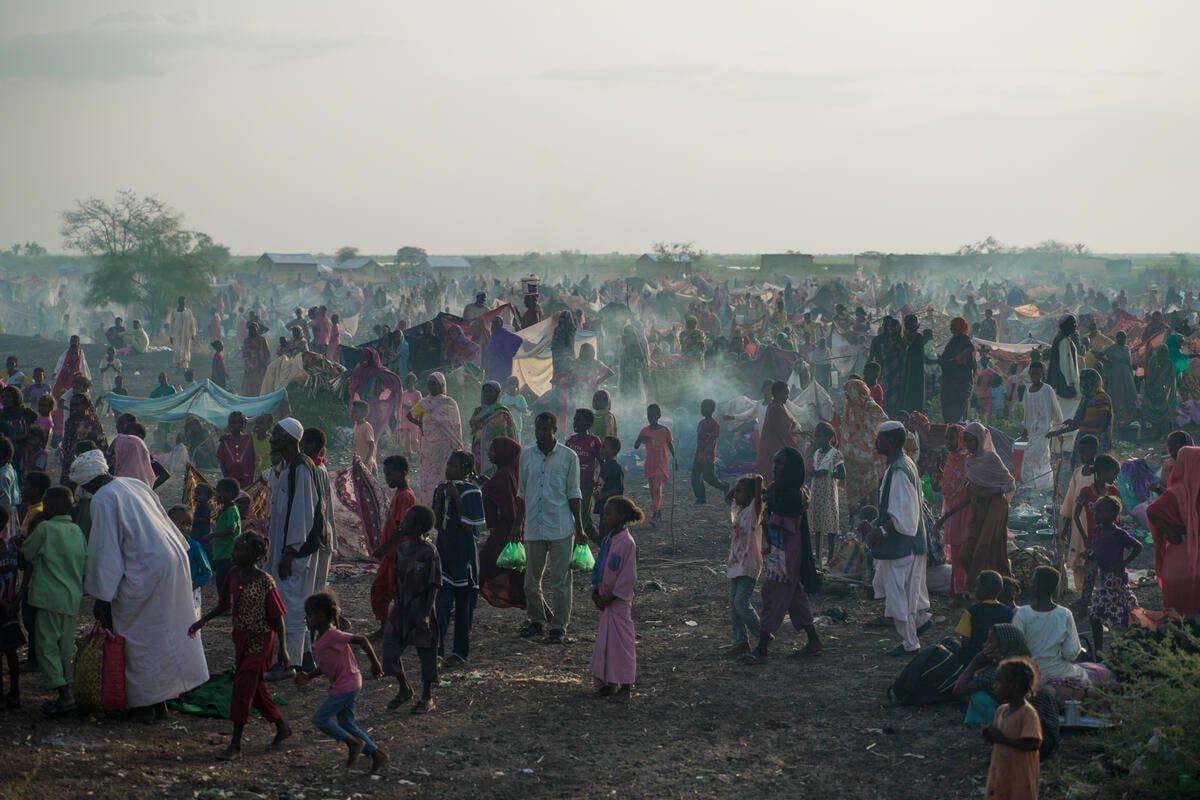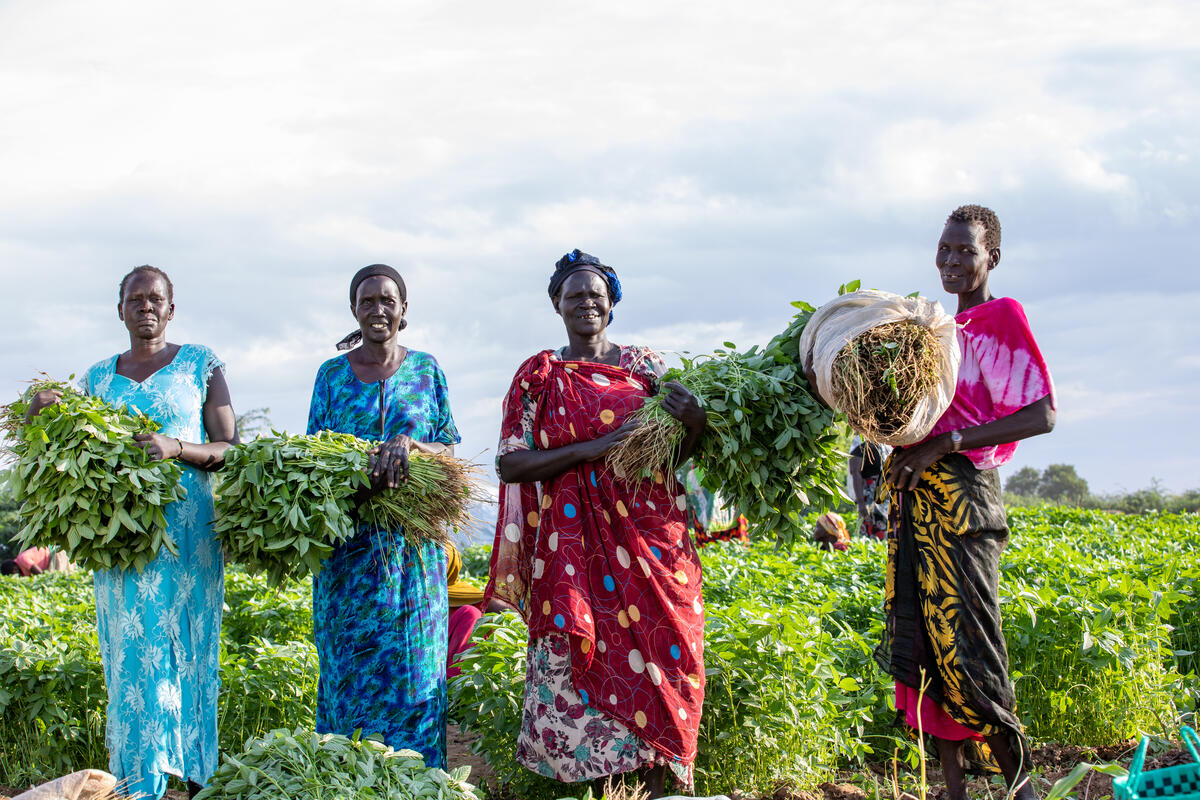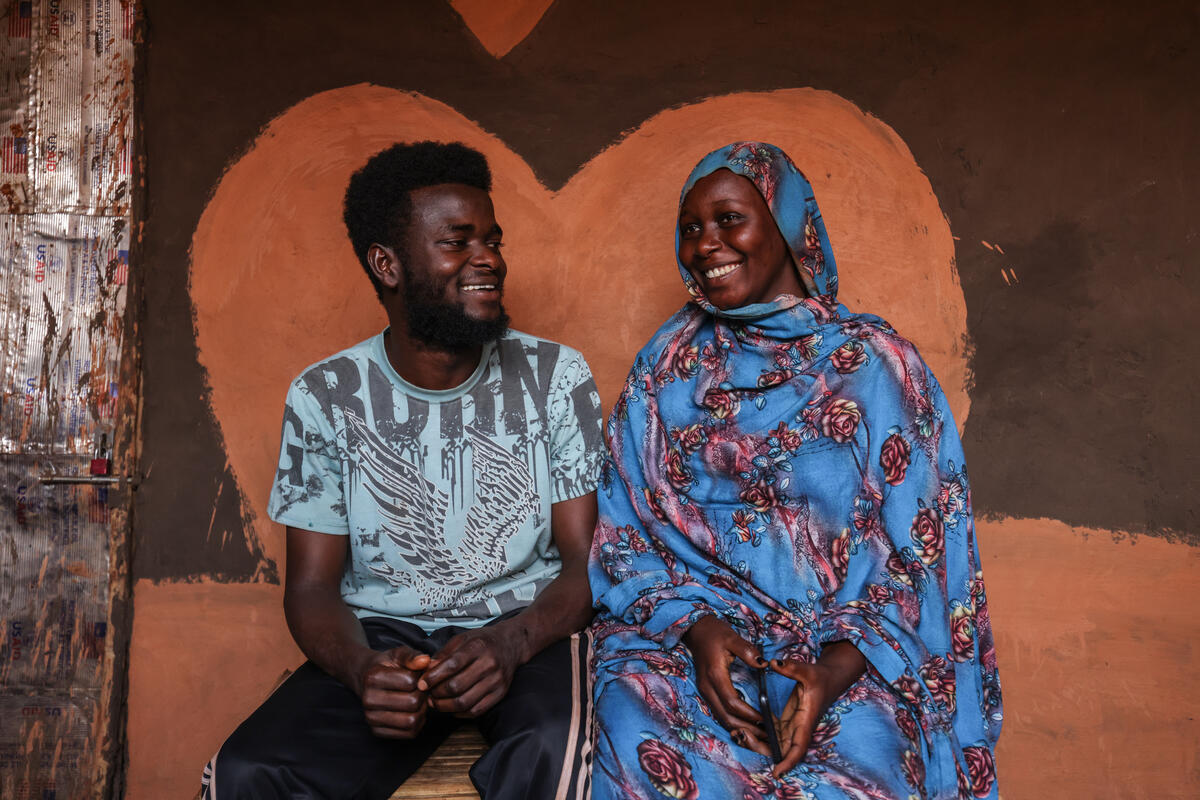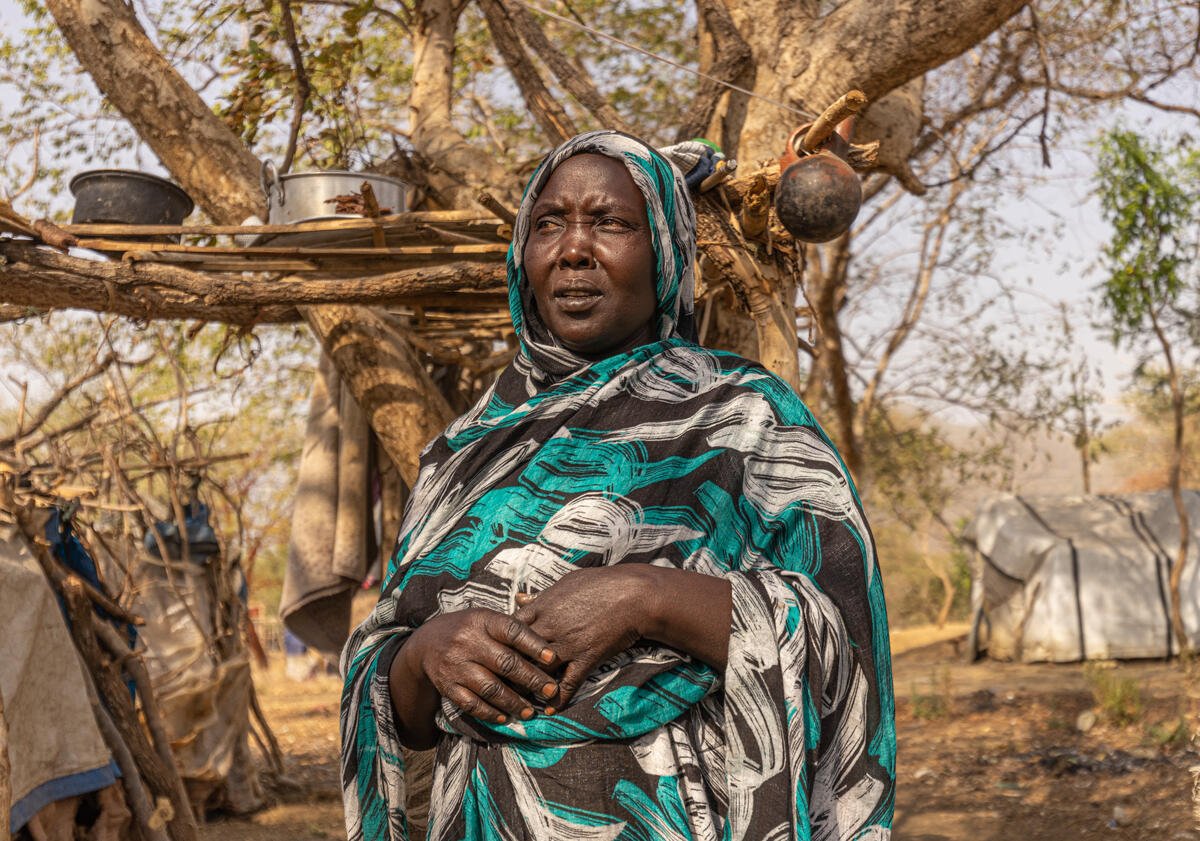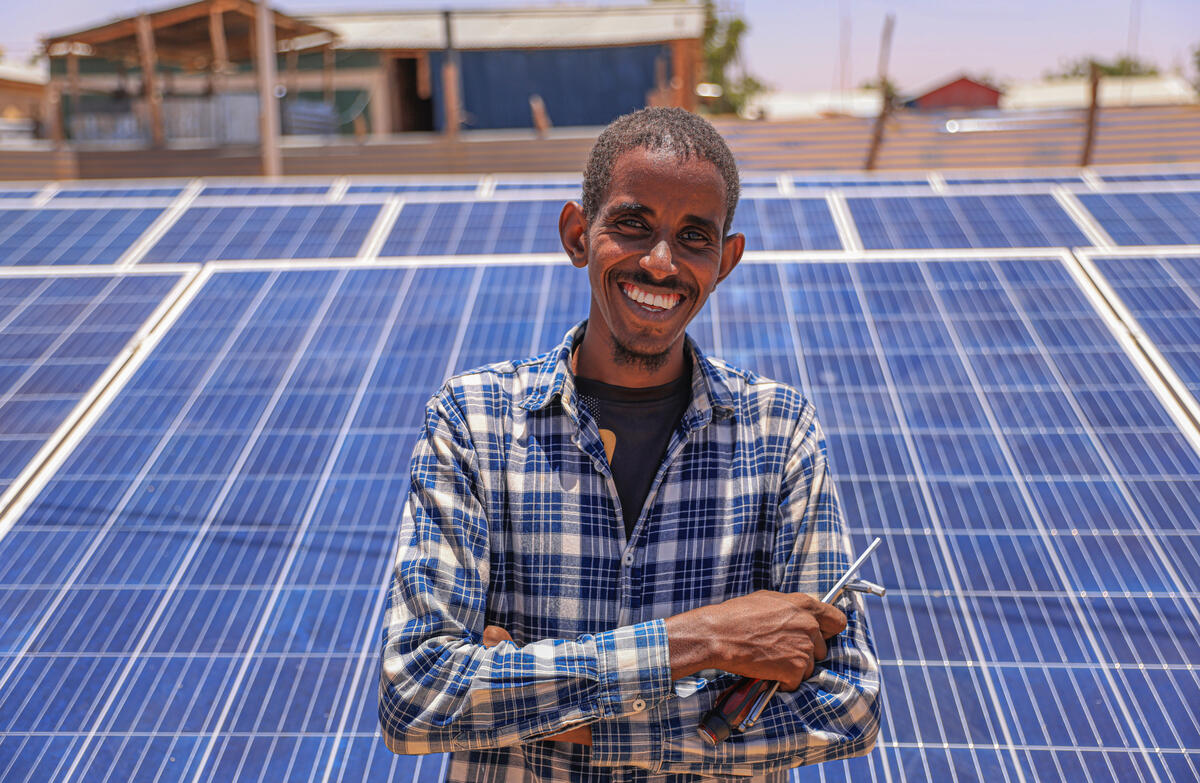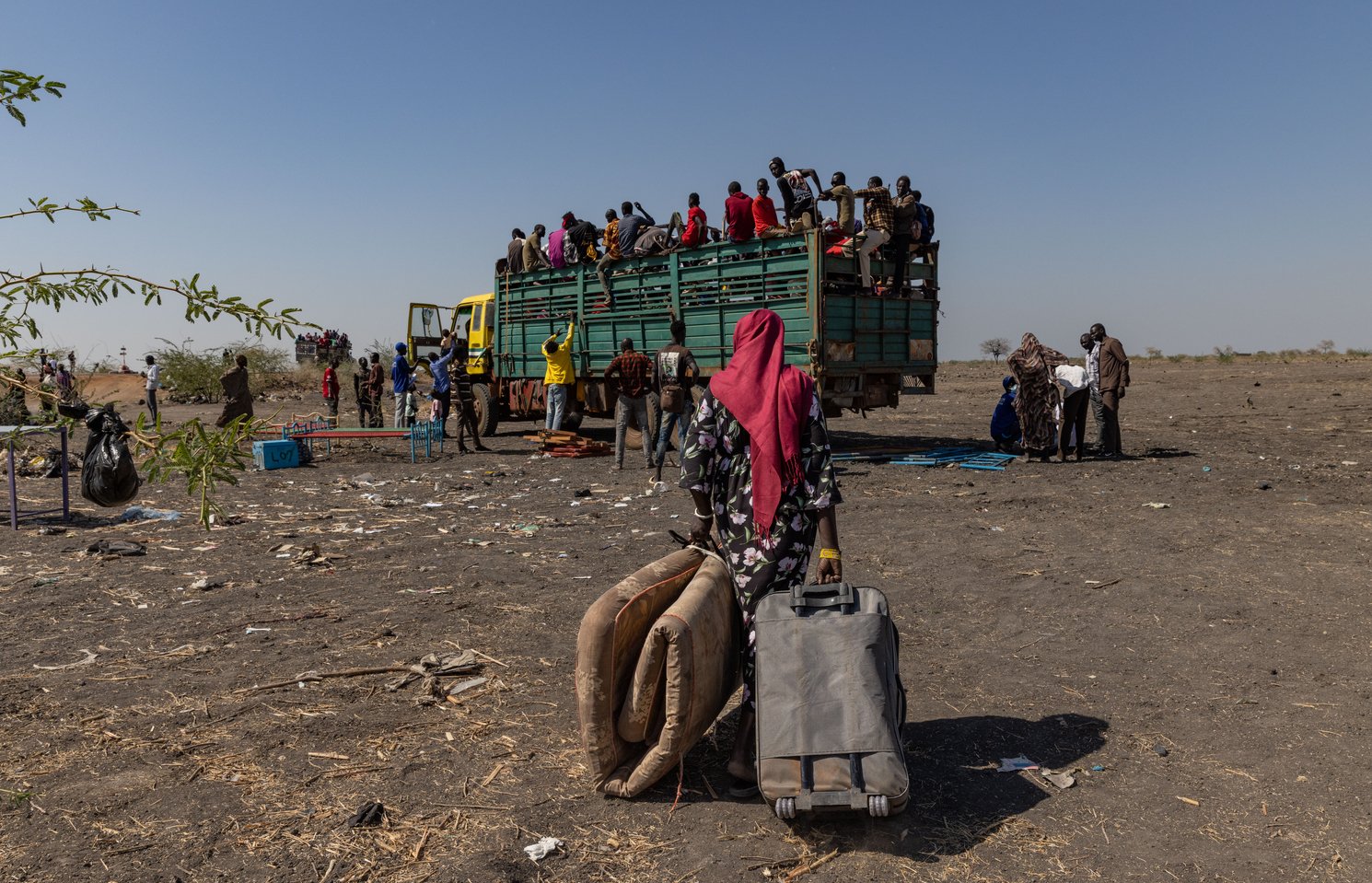Ethiopian women giggle and strain in a yoga class like no other
Ethiopian women giggle and strain in a yoga class like no other

GOROM, South Sudan, February 25 (UNHCR) - The women giggle and strain as they try to follow their teacher, Naomi Swain, who is sitting in the lotus position on the red cement floor of a spartan classroom in South Sudan.
But Swain is impressed with her students, all of whom have fled violence or persecution in Ethiopia since 2004 and found shelter in Gorom Refugee Camp, near the South Sudan capital, Juba. "Their bodies are quite different. They're much stronger, they can hold positions for a long time as opposed to office workers," noted Swain.
The British national teaches the free yoga classes to about a dozen students, but the idea to bring her in to help the refugees at Gorom came from Sara Gottfredsen, an associate protection officer, after she and other UNHCR staff in Juba began taking classes from Swain. She uses a curriculum from Mandala House, a non-profit organization specializing in trauma rehabilitation.
It's certainly something different in the drab daily life of camp, and Gorom is believed to be the only refugee camp in South Sudan that provides such a programme. Gottfredsen said the aim was to help empower women in the camp of 1,950 Ethiopian refugees and create a space away from their daily tasks of cooking food, carrying firewood, fetching water and caring for their children.
"If they have a stronger bond with each other, they will play a bigger part in the deci-sion-making process in the camp," said Gottfredsen, who hopes to expand the pro-gramme to other camps, including those providing shelter to tens of thousands of Sudanese refugees. "It's more about their doing something for themselves and as a group of women together," she noted.
So far, the daily classes seem to be having a positive effect, though the women had never heard of yoga before they met Swain. "I feel better, I'm happy when I'm doing my work at home," said Ariet Okidi, a mother of three children, during one recent session. "I'm relaxed," she added with a big smile.
As Swain went through the more simple yoga postures, poses, stretches and breathing exercises, a group of seven women followed her as best they could, unable to speak English and frequently laughing but always attentive.
As the session progressed, several more women arrived in the room that doubles up as a classroom for children in the camp, with chairs piled up haphazardly in one corner and a blackboard covered in the chalked scrawling of a recent lesson.
What they lacked in technique, the students made up for with their enthusiasm. "In this class we are thinking about breathing. In this class we are here now," the teacher told her students.
By the end, the women were sweating due to the intense heat in the room, but they appeared calm and serene. "People who have been through trauma, who have not been able to look after themselves, and who are vulnerable, need to reclaim their bodies," Swain explained.
"I'm happy to come but my mother and father are not happy," Friday James told a UNHCR visitor. "They said that if you do yoga you cannot have children," she added, while confiding that she didn't believe a word of it. She had found something else to believe in and to help her make more of her life in exile.
By Eduardo Cue in Gorom, South Sudan

